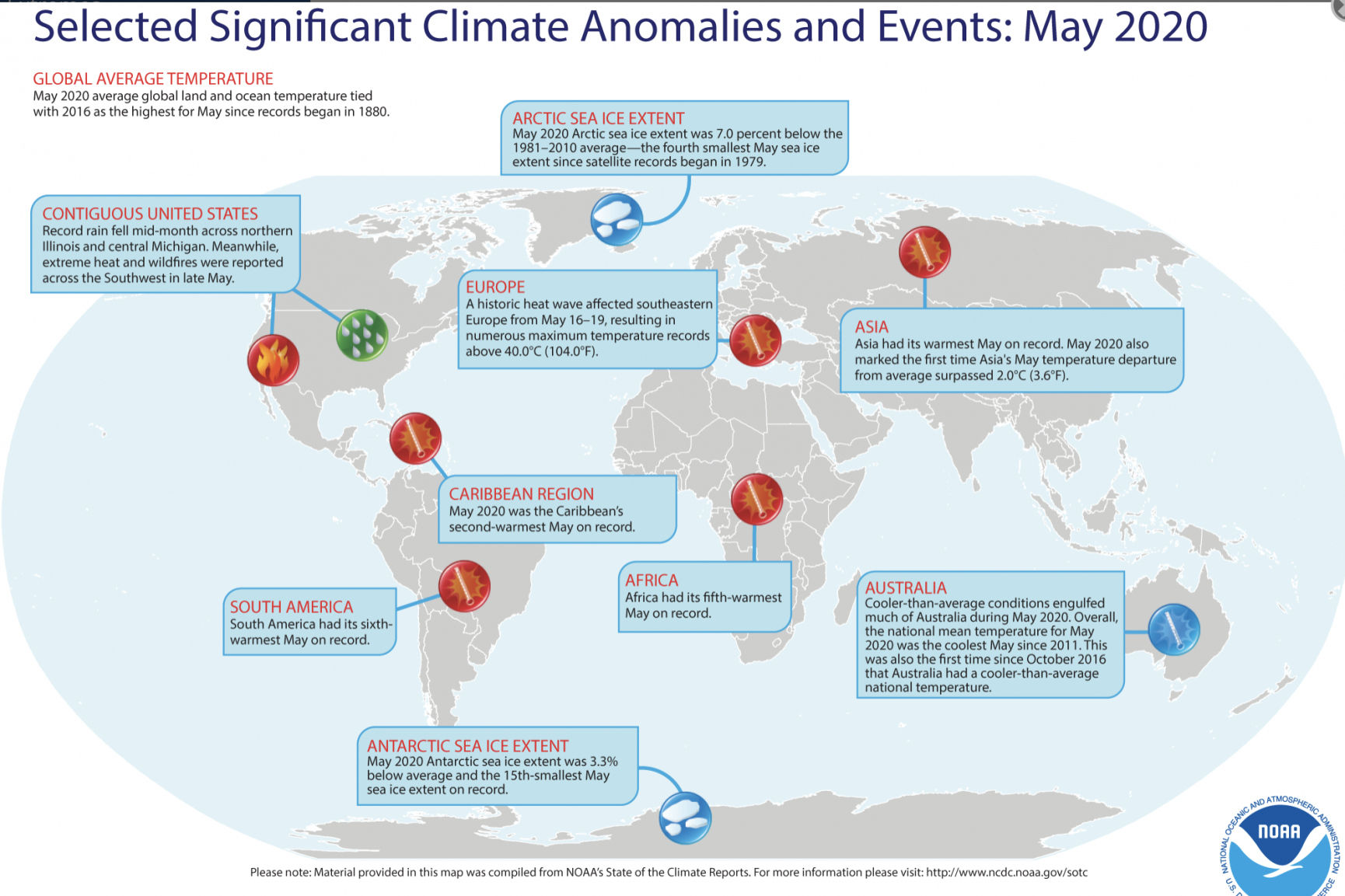Last month was joint-hottest May since records began
Over Siberia and the Arctic ocean, temperatures were 10C above average for this time of year

Your support helps us to tell the story
From reproductive rights to climate change to Big Tech, The Independent is on the ground when the story is developing. Whether it's investigating the financials of Elon Musk's pro-Trump PAC or producing our latest documentary, 'The A Word', which shines a light on the American women fighting for reproductive rights, we know how important it is to parse out the facts from the messaging.
At such a critical moment in US history, we need reporters on the ground. Your donation allows us to keep sending journalists to speak to both sides of the story.
The Independent is trusted by Americans across the entire political spectrum. And unlike many other quality news outlets, we choose not to lock Americans out of our reporting and analysis with paywalls. We believe quality journalism should be available to everyone, paid for by those who can afford it.
Your support makes all the difference.Last month was the joint-hottest May on record, according to new data, signalling that 2020 is likely to have some of the highest temperatures the planet has experienced in modern history.
May 2020 tied with May 2016 for average global land and ocean temperatures, while April 2020 was on par with April 2016 for the hottest temperatures since records began in 1880.
The global average temperature for May 2020 was 15.7C (60.3F), according to two independent measurements by the European Copernicus Climate Change Service (C3S) and the US National Oceanic and Atmospheric Administration’s (NOAA) included in the State of the Climate: Global Climate Report for May 2020.
Freja Vamborg, a senior scientist at C3S, part of the European Centre for Medium-Range Weather Forecasts, is responsible for the monthly climate updates.
She told The Independent: “It is unquestionably an alarming sign that the last month has been the warmest May on record globally. However, even more concerning is the fact that average temperatures of the last 12 months have become one of the hottest 12-month-periods ever recorded in our dataset.
"Of course, this does not as such represent a long-term climate trend, as monthly temperature deviations vary, and some regions showed below average conditions. That´s why monitoring our climate continuously is invaluable to ascertain long-term climate trends.”
Both studies found abnormalities over Siberia and the Arctic Ocean with temperatures about 10C (18F) above average for this time of year.
NOAA reported that the amount of sea ice covering the Arctic Ocean was 7 per cent below the 1981-2010 average - the fourth-smallest May sea ice cover since satellite records began in 1979.
Asia had its warmest May on record and the month also marked the first time the region’s deviation from its May average temperature had surpassed 2C (3.6F).
May 2020 was the Caribbean’s second-warmest on record; South America had its sixth-warmest May; and it was the fifth-warmest May in Africa.

The findings come from computer-generated analyses using billions of measurements from satellites, ships, aircraft and weather stations around the world.
The average global temperature increase is being driven by climate change but there are regional variations. For example, in Europe, May was slightly cooler than average overall, and below average over a substantial region extending from Scandinavia to the Balkans and the northern coast of the Black Sea, C3S reported. However, temperatures were above average over most of southwestern and northeastern Europe.
A historic heatwave affected southeastern Europe between 16 and 19 May, resulting in numerous maximum temperature records above 40C (104F), NOAA found.
There were cooler than average conditions across much of Australia in May and overall the national mean temperature for last month was the coolest since May 2011.
In the mainland US, record rain fell mid-month across northern Illinois and central Michigan. Meanwhile, extreme heat and wildfires were reported across the southwest in late May.
The 10 warmest Mays have all occurred since 1998, NOAA reported. “May 2020 also marked the 44th consecutive May and the 425th consecutive month with temperatures, at least nominally, above the 20th century average,” the agency said.
Research suggests that 2020 is unlikely to be the hottest year on record but is predicted to be in the top 10 and may even reach the top five.
Join our commenting forum
Join thought-provoking conversations, follow other Independent readers and see their replies
Comments